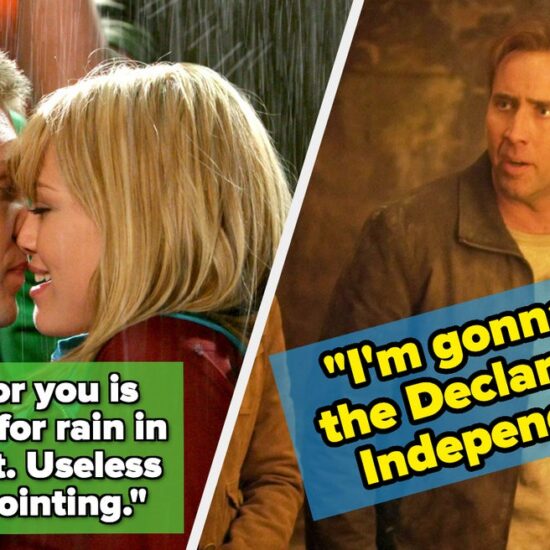
Hollywood movie premieres usually don’t begin with the star admitting personal wrongdoing.
Yet that’s what happened last week at “The Flash” rollout in Los Angeles, when Ezra Miller came out of hiding to walk the red carpet outside Grauman’s Chinese Theatre. Miller was emerging from near-career cancellation, a feat managed by few celebrities in today’s shame-and-shuck cultural climate.
Miller thanked Warner Bros. and DC Studios executives for making and releasing the superhero film — it opened wide in theatres last Friday — and “for your grace and discernment and care in the context of my life and in bringing this moment actually to fruition.”
The carefully worded statement by the actor, who is non-binary, acknowledged the allegations and/or charges they have drawn in recent years, including harassment, disorderly conduct and multiple incidents of assault and abuse. Miller, 30, is also accused of “brainwashing” and “cultlike behaviours and emotional abuse” involving an 18-year-old Indigenous activist.
This time last year, industry pundits were blowing taps for the once rising star’s career, predicting Warner Bros. would sever all ties with Miller and shelve “The Flash,” eating its $200-million production cost.
But in August 2022, the opposite happened after Miller issued an abject public apology, blaming their bad behaviour on “complex mental health issues” that are now being treated. “I am committed to doing the necessary work to get back to a healthy, safe and productive stage in my life,” they said.
Now, as the L.A. premiere demonstrated, “The Flash” and Miller’s acting career appear to be firmly back on track.
Miller’s fellow actor Johnny Depp has experienced a similarly unexpected career reprieve.
Last year, Depp seemed on the verge of total career collapse after his now ex-wife Amber Heard levelled serious allegations of spousal abuse against him. (Depp ultimately won a defamation lawsuit against Heard.) Last month, Depp, 60, walked the red carpet to open the Cannes Film Festival with his new movie “Jeanne du Barry.”
Not all of Hollywood’s fallen men are being welcomed back into the fold.
This year, Cannes passed on Woody Allen’s new film, “Coup de Chance,” the 87-year-old writer/director’s 50th movie and first one in French, due to decades-old allegations that he sexually assaulted his daughter.
“J’accuse,” the most recent film by director Roman Polanski, 89 — who, in 1977, pled guilty to the statutory rape of a 13-year-old — wasn’t released in North America.
Actor Will Smith, 54, is still in the early stages of a 10-year ban from the Academy Awards, after slapping presenter Chris Rock at the 2022 Oscars telecast. Smith’s most recent film, the slavery drama “Emancipation,” exploded on contact last year despite early Oscars buzz.
The context for all of this is, of course, the #MeToo movement that roiled Hollywood, revealing multiple accounts of sexual assault and harassment. It also sparked an important question: how much does the male-dominated movie industry aid and abet bad behaviour, mostly through silence and looking the other way?
A lot, according to Maureen Ryan, a veteran TV writer and Vanity Fair contributing editor. Ryan’s new book, “Burn It Down: Power, Complicity, and a Call for Change in Hollywood” is based on her decades of experience and dozens of interviews with people in film and TV about toxic encounters and abusive behaviour they experienced on the job.
“Lots of unfortunate s–t from Hollywood’s past has come out in recent years, which is both essential and infuriating,” writes Ryan, herself a survivor of sexual assault.
“The industry trained so many of us to think that creative people are ‘temperamental,’ and that that word — along with ‘passionate,’ ‘driven’ and ‘difficult’ — automatically encompasses some terrible things. The not-so-subtle subtext is that those damaging ‘norms’ and processes are the price of creating memorable art.”
Some celebrities’ behaviour is worse than others, of course. But public reaction to alleged infractions isn’t always commensurate to the facts.
Jordan Foster, a PhD candidate in the University of Toronto’s department of sociology, said there are three reasons why one celebrity might face cancellation for violating societal norms while another star emerges relatively unscathed.
The first is “the degree to which these violations diverge from each star’s public persona,” said Foster. “Public personas are carefully contrived and fans are likely to experience fallout if stars act in a way that is perceived to be inconsistent with said persona.”
The second reason is that some celebrities are better than others at seeming contrite.
“Public apologies and/or public messaging around a star’s behaviour can make a big difference for whether or not they are forgiven, and the more sincere the apology is perceived to be the better,” said Foster.
“Ezra Miller has ‘sought treatment’ and made an apology for (their) recent public scandals, and this may account for some of the differences we’re seeing in how these stars have been treated,” said Foster. “Ezra’s apology, it is worth noting, calls on the language of mental health and this is an appeal that is broadly familiar to the public.”
The third and most subjective reason for cancellation has to do with “status characteristics like race, gender, sexuality and ability,” Foster said. “These characteristics tap into deeply seeded stereotypes and tropes that may advantage some stars over others.”
These factors may play a role in the case of actor Jonathan Majors.
Majors, 33, was supposed to be Hollywood’s next big star. He won critical kudos at the Sundance Film Festival last January for his starring role in “Magazine Dreams,” a film about a bodybuilder whose fitness obsession drives him near madness. There was talk of Best Actor nominations and an end-of-year release of the film to build on Oscar buzz.
This year, Majors also had significant roles in “Creed III” and the Marvel blockbuster “Ant-Man and the Wasp: Quantumania” as Kang the Conqueror. There were plans for an “Ant-Man 3” movie and two “Avengers” films in the works.
Then on March 25, New York police answered a 911 call for a domestic dispute and found Majors with a distraught and injured 30-year-old woman, reportedly his girlfriend. Majors was charged with strangulation, misdemeanour assault and attempted assault, harassment and aggravated harassment. (The strangulation charge was later dropped.) Majors has denied all allegations.
Majors has since been fired by his public relations firm and his talent agency. He’s also reportedly been cut from a planned Otis Redding biopic, among other projects. His domestic violence trial is scheduled for Aug. 3.
How will Disney — and its Marvel Studios subsidiary — handle Majors in the future? Will they display the same patience Warner Bros. and DC Studios extended toward Ezra Miller, along with a carefully orchestrated career redemption campaign? Nobody is saying anything at the moment.
According to Sasha Stone, the Hollywood-watching founder and editor of the film/awards discussion website Awards Daily, it all comes down the brutal realities of human nature.
“People will care and pressure companies to take action if it boosts their status. If it doesn’t, they ignore it,” Stone said.
“If it boosts their status to take someone down and keep them down — Woody Allen — then they will make a fuss about it. If it doesn’t — Ezra Miller — then they ignore it. It’s selective outrage and self-serving. That’s why punishment is always better by due process rather than by mob.”
Harsh words, but the judgment of moviegoers may be the ultimate test for Miller and “The Flash.” The early box office results are disappointing: $55.7 million over three days, well below the movie’s projected $70 million.
That lukewarm response may ultimately owe more to overall superhero fatigue and the movie’s quality (it has a 67 per cent critic’s rating on Rotten Tomatoes) than to Miller’s behaviour. But, as the face of the franchise, it still likely means the actor’s career is on ice. In Tinseltown, after all, it always comes down to money.
JOIN THE CONVERSATION
does not endorse these opinions.















